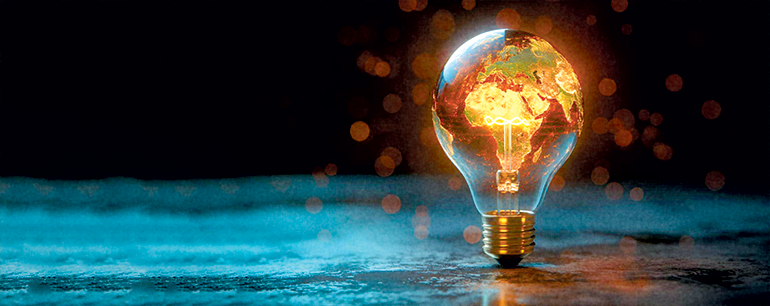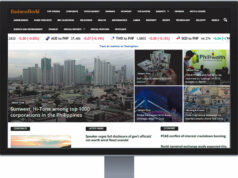Forged in fire: The Philippine startup ecosystem comes of age

By Bjorn Biel M. Beltran, Special Features and Content Assistant Editor
“The Philippines has so much potential.” An oft-heard refrain, increasingly with a tinge of frustration.
Because while the country boasts one of Southeast Asia’s youngest, most digital-ready populations, its startup community has long struggled to match its promise. Infrastructure, capital, and policy remain the defining challenges for Filipino entrepreneurs today.
The potential is recognized the world over. According to the 2025 Global Startup Ecosystems Report (GSER) by Startup Genome, Manila’s startup ecosystem generated $6.3 billion (around P352 billion) in value from mid-2022 to the end of 2024. That marks a strong 35% annual growth rate compared to the previous two-and-a-half-year period.
Startup Genome defines “ecosystem value” as the combined valuation of funded startups (including unicorns) and recent exits such as acquisitions and initial public offerings (IPOs). In essence, it reflects the total economic impact generated by the startup scene during that time.
Bucking global trends, this pushes Manila up in the rankings of Emerging Startup Ecosystems, placing in the 61-70 bracket this year from 81-90 last year and 91-100 in 2023.
The GSER follows the results published by early-stage venture capital firm Foxmont Capital Ventures and Boston Consulting Group in their Venture Capital Report 2025, which found that despite the generally subdued sentiment within the local startup industry, startup activity in the Philippines actually peaked in 2024. Total funds raised by startups in the Philippines reached $1.12 billion last year, up 16.6% compared to 2023’s $960 million and just slightly ahead of 2022’s record $1.11 billion.
Yet, for all that increase in value, the country has been consistently declining in terms of ecosystem growth. In the 2025 Global Startup Ecosystem Index by research firm StartupBlink, the Philippines slipped to 64th place out of 100 countries with a score of 2.237, amid persistent gaps in infrastructure and regulations.
This was the fourth straight year of decline for the Philippines, which ranked 52nd in 2021, 57th in 2022, 59th in 2023 and 60th in 2024.
“The ecosystem growth of the Philippines is around 0.56% this year, and it’s being overtaken even by locations that are also decreasing in the rankings,” StartupBlink Head of Data & Consulting Ghers Fisman said, adding that the country’s annual growth is the lowest in Southeast Asia.
The Global Startup Ecosystem Index evaluates startup ecosystems across 100 countries and 1,000 cities, using scores that assess the quantity and quality of startups, and their existing business environment.
Two years ago, in the 2023 Global Startup Index published by Business Name Generator, which took into account tax rates, economic growth, cost of living and setup costs, the Philippines was named the most challenging country in which to launch a startup.
The cost of launching a startup in the country was among the highest of 50 countries in the index at 23.3% of GNI per capita. Low average recorded salaries and quality-of-life scores for employees also affect productivity, employee engagement, and job satisfaction, it added.
Clearly, not much has changed to address these issues. Taken together, the data points to an ecosystem with strong bottom-up energy, yet one ultimately held back by structural bottlenecks. Investors and founders alike are navigating these pressures daily.

“The Philippines is paradoxical,” Miguel Lorenzo L. Macale, senior investment manager at IdeaSpace Ventures, said in an interview. “It is one of the hardest markets to build in, but that same difficulty breeds a certain grit and resilience.”
The Manuel V. Pangilinan-backed IdeaSpace Ventures is among the premier startup enablers in the country. Speaking from his experience, Mr. Macale observed that founders who thrive in the Philippines are “forged in fire” and “tempered by the unique and fundamental challenges we face here.” Exposure to that kind of startup environment builds adaptability and resourcefulness.
“We have Indonesia’s scale, Vietnam’s hunger, and Singapore’s connectivity, but layered with something distinct: a global services backbone and a diaspora-driven financial flow that ties us to the world,” he said. “We may not match Singapore’s capital breadth depth or Vietnam’s robust manufacturing capability, but what we do have — creativity, adaptability, and a digital-native population of 115 million — isn’t easily replicated elsewhere.”
Franco Varona, managing partner at Foxmont Capital Partners, outlined five key challenges that Philippine startups face today: tedious and lengthy business documentation processes; red tape as one of the biggest bottlenecks for growth; manual regulatory reporting; lengthy timelines when setting up a corporation; and difficulty in processing documents.
However, Mr. Varona found that these hurdles did little to quench the fire that was quietly burning within the Philippine startup scene, as was the case during the coronavirus disease 2019 (COVID-19) pandemic when countless new ventures were born — including Foxmont Capital itself.
“Our digital infrastructure improved immensely during this period. And the country rapidly digitized which helped to really kick-start the startup ecosystem of the Philippines. All of a sudden, there were many new opportunities for entrepreneurs to approach and solve,” he said.
“The Philippine startup ecosystem, by and large, is a blue ocean. As long as there are problems, there can be a startup to solve them.”

An ocean of friction
A blue ocean it may be, but smooth sailing it is not. Many aspiring entrepreneurs find that the waters of the Philippine startup ecosystem are heavy with salt, sand and undertow.
Open innovation agency and startup accelerator Launchgarage noted that for nearly 25 years, the Philippine tech talent pool has been consistently developing through extensive experience with United States-based technology outsourcing. The local ecosystem stands to benefit from the influx of experienced engineers who have worked with both big tech companies and startups.
“This workforce is now well-positioned to power the local startup scene as founders, builders, and key team members,” Launchgarage said in an interview. “In addition, the country’s large, young, English-speaking, and digitally savvy population makes it an ideal market for launching technology startups.”
Yet in reality, things are far from ideal. “The Philippines’ current business regulatory environment does not actively support technology startup growth. Restrictions on foreign ownership and capital gains taxes on share transactions deter venture capital investment in locally registered tech startups. Key elements that fuel entrepreneurship in more mature ecosystems, such as founder equity, are also inadequately supported,” the company said.
“Being a startup founder in the Philippines often feels like we’re being penalized for dreaming of a better world,” Packworks, a platform that aims to empower Filipino micro entrepreneurs all over the country, said in an email. “The road for any entrepreneur building something from scratch in the Philippines is worse than EDSA on payday, during the Christmas season, in the middle of a typhoon. Everything is slow, there’s minimal urgency, and there’s even less structural support.”
Packworks cited the glaring example of simply finding opportunities outside Metro Manila. Despite only housing 12% of the Philippine population, the company pointed out that it feels as if 90% of business is concentrated here. “If you’re building outside the NCR (National Capital Region), it can feel like you’re on your own,” the company said.
Packworks was also a company born during the pandemic. They described the period as “the ultimate disruptor,” forcing everyone, especially sari-sari stores, to adapt and embrace technology almost overnight. These stores, many run by “digital immigrants,” became the unexpected but essential adopters of digital tools, which then laid the groundwork for the post-pandemic startup ecosystem that now sees real opportunity in serving these overlooked communities.
“While there have been plenty of ups and downs, that digital foundation remains and continues to grow. But for us, digitization isn’t just about massive growth; it’s about resilience and sustainability. The startup mindset has shifted from chasing scale to building systems that can last,” the company said.
Greentech logistics firm Mober echoed the sentiment. “COVID-19 tested us but it also accelerated our ability to build impact-led businesses. At Mober, the pandemic pushed us to transition fully to electric vehicles, a move we began in late 2021. That shift, admittedly risky at the time, proved critical. It showed that even in a crisis, startups can choose purpose over expedience,” the company said in an interview.
“Our community became tougher, more mission-driven. Founders realized resilience isn’t just surviving, you innovate through. That renewed focus has birthed stronger climate tech, agritech and logistics‑tech momentum across the Philippines.”

Clearly, there is a bright side to adversity and friction. It encourages evolution. For many startups, the last few years have been a forced coming-of-age. The romanticism of disruption has given way to the reality of survival: cash flow, customer retention, and operational discipline.
As Mr. Macale of IdeaSpace Ventures puts it, the Philippine startup community has shed some of its early naïveté and what remains is leaner, more mature, and tougher than ever.
“Today the ecosystem is smaller in quantity but stronger in quality. We’re seeing more capital discipline, more serious founders, and more openness from corporates to partner with startups. In short: the pandemic was a filter, and the ones left standing are now building with a maturity that we hadn’t seen before,” he said.
“Both founders and investors have paid the ‘tuition fees’ of investing and fund-raising during the 2010s and through the early 2020s. They’ve matured and gotten wiser in equal measure, and are now more focused on the real metrics that matter: the right team, a sizable (and growing) total addressable market, and real traction.”
Grit, then, has become a defining trait of Philippine startups over the years. But it begs the question: Should it have to be?
Resilience may be admirable, but when survival is a prerequisite for progress, the cost of entry becomes too high. Founders shouldn’t have to bootstrap in obscurity, navigate regulatory minefields, or incorporate abroad just to be viable.
Many players in the scene have already outlined what needs to change. “To elevate the Philippines as a true startup frontier in Southeast Asia, we need to focus on a few critical levers,” Mober said.
“First, unlock blended finance and offer tax incentives for asset-heavy, sustainability-led ventures. Second, infrastructure must expand beyond Metro Manila. Third, regulations must evolve with innovation. Lastly, we need to empower regional founders by decentralizing access to incubators, mentors, and funding. Innovation can and should thrive beyond NCR. Whether it’s a climate tech startup in Iloilo or a logistics disruptor in Davao, they deserve the same runway to scale.”
Launchgarage echoes this, emphasizing the role of state support in unblocking growth. “Government support for startup ventures can significantly accelerate the sector’s growth. Financial incentives like tax holidays, along with streamlined business registration processes, would reduce administrative burdens, allowing entrepreneurs to focus on building and scaling their startups,” it said.

“The raw ingredients are here. What we need is an ecosystem that allows these ingredients to come together, reducing friction, increasing trust, and unlocking the potential we keep talking about. Because potential, on its own, isn’t a strategy,” Packworks stressed.
If the Philippines is serious about becoming a startup frontier, it must reduce the friction that turns every entrepreneurial journey into a test of endurance.
The turbulent waters of the Filipino startup ecosystem may forge great captains, but calmer seas could create more of them. And when the times hold so much promise and potential, the country needs as many at the helm as it can get.



